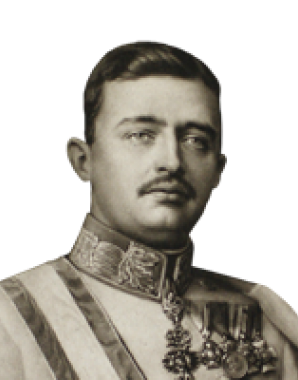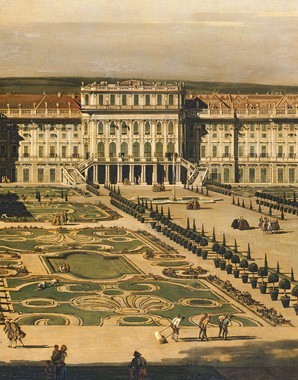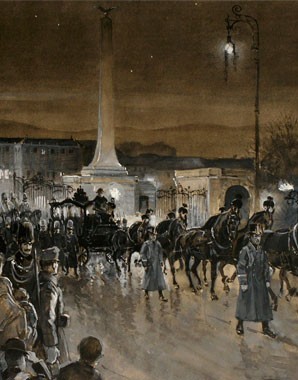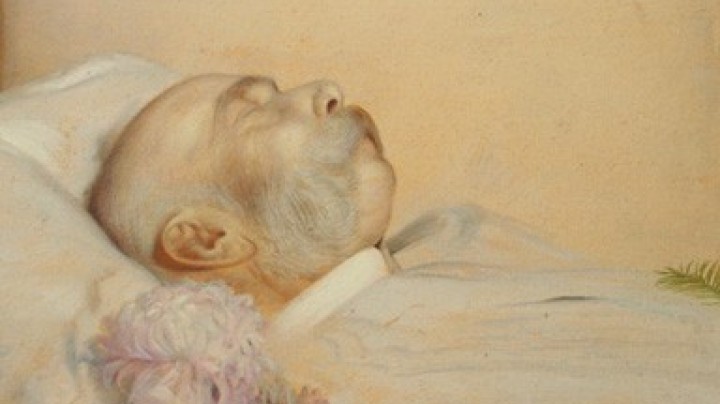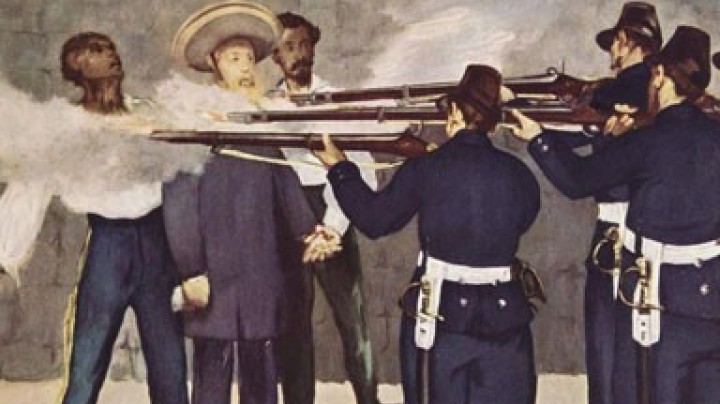Downfall and rebirth
The First World War spelled the downfall of the Danube Monarchy and the withdrawal of the Habsburgs after centuries in power.
Former Austrian chancellor Bruno Kreisky in his memoirs Zwischen den Zeiten (‘Between the eras’). Translation by Helen Atkins and Matthew Paul Berg in Matthew Paul Berg (ed.), For a Democratic Austria: Bruno Kreisky on Peace and Justice (New York: Berghahn Books, 2000)Some mourned the loss of the vanished empire, others dreamed of being absorbed into a new empire encompassing all Germans. There was really nothing between these two positions.
On 21 November 1916, in the middle of the First World War, Emperor Franz Joseph died in Schönbrunn after sixty-eight years of rule. The mood at the funeral ceremonies showed that his death was seen as a symbol of the downfall of the centuries-old Habsburg Monarchy. The aged Emperor was succeeded by his young and inexperienced great-nephew Karl, who was unable to halt the Monarchy’s terminal decline.
October and November 1918 saw the disintegration of the Danube Monarchy, the proclamation of new nation-based states, and the conclusion of ceasefires. Many people in the lands formerly under Habsburg dominion experienced the departure of the rulers with a sense of liberation. In Prague, for instance, on 28 October 1918 – the day of the foundation of the Republic of Czechoslovakia, now the Czech national holiday – the people proclaimed: ‘The war is over, Austria is defeated, we are free, we have our own state, our republic!’
In the early months of 1919, peace treaties concluded in various Paris suburbs determined the destiny of the successor states to the Habsburg Monarchy. Two of these, Austria and Hungary, became the legal successors of the Monarchy. Among other things, they were held responsible for the war. The massive territorial losses were laid down in the peace treaties of St Germain (for Austria) and Trianon (for Hungary). What had formerly been the Habsburgs’ huge multinational empire was thus divided up into many small units. Austria and the other lands now entered on new eras in their history, in which the Habsburgs no longer played a role as a ruling dynasty.






